Q&A with the School Board Candidates
This year, as everyone knows, is an election year. Though the presidential race is by far the most publicized election, there are positions at the local level to be voted on this year as well. The Chelsea School Board currently has two positions open with two incumbents up for reelection and two first time runners. The Bleu Print reached out to all four candidates and got responses from Dana Durst, Eric Wilkinson, and write-in candidate Mark Vandewege. This article will be updated if we hear back from Tammy Lehman.
There will be a candidate forum for the Chelsea School Board on October 15th at 7:00 pm, questions can be submitted to [email protected] no later than October 12th. The Zoom Webinar forum can be accessed here:
https://chelseaschooldistrict.zoom.us/j/98073860143?pwd=cU15SzEvUzBnSXkzUXZjU1ZYVW9rQT09#success
Provided below are each candidate’s answers to important questions regarding CHS.
For the two new candidates, is there a reason you decided to run this year?
Wilkinson: “I want to help my community. This year compared to another, there’s no specific reason for this year in general. I have children in the school district and I care about the community. I want to help do my part.”
Vandewege: “Back in July when the kids from Anti-Racist Chelsea Youth(ARCY) were doing their marches through town, I saw an article about the incident that happened at Pierce Park and saw the police officers on top of the roof of the police station taking videos of the kids. It just didn’t sit well with me. I realized that, especially in Chelsea, what ARCY is doing to stand up for what they believed in as right takes a lot of courage, and I value racial equality and social justice. There’s only so much ARCY can do as students, particularly if they are not old enough to vote, so they need some grownups to help along the way. Running for school board is an opportunity to help promote the values they’re standing for, act on behalf of them and pursue their efforts in a local office.”
Please describe the role of the school board in the district:
Durst: “The school board has two main roles: to create and review policy and to hire [and evaluate] the Superintendent.”
Wilkinson: “The school board is similar to a corporate board, you have the school superintendent and her administration that manage the day to day activities of the district, similar to a business having a CEO or a president and their staff that manages a business. Then there’s the board of directors or here we have the school board trustees that help to provide some oversight to the superintendent, provide goals and directions as elected members of the community, to be able to speak for the residents of the community and be able to outline those goals and directions and be able to provide the funding to see that those goals can be carried out. So at a high level, the school board is helping to support the overall execution of the district in providing the basic education for students.”
Vandewege: “The school board acts on behalf of the community, the taxpayers, and interacts directly with the superintendent. The students are members of this community, and they do have an interest in what happens on the school board. The superintendent is the one that proposes teachers being hired or statements being made on behalf of the school district and the school board has committees that assist in those efforts. There is a committee that is working on a statement on racial and social justice and equality. The school board works on bonds that impact the school facilities, building, things of that nature, and works on budgeting what gets spent on the schools. The big impact on the kids is approving the teachers that the superintendent Helber proposes to be hired.”
Have you seen this type of investment in the school board election from the public before?
Durst: “We live in a great community with people that care deeply about our schools and city. The community being invested in the school is not new. It is one of the many things that make Chelsea special.”
Wilkinson: “Unfortunately a lot of these local elections often get overlooked, not a lot of attention, and worst case you have no one running for some of these important positions or the positions are left uncontested. In the case with the school board, six years ago there were four open positions and only four people ran for it so voters really didn’t have a choice. With me in the race, I hope to provide voters an opportunity to have a choice. I’ve been trying to do my best to make information available about myself and my positions so that voters can be able to make an informed decision.”
Vandewege: “I think it’s a reflection of the bigger issues going on in the country right now, particularly racial and social justice, that has thankfully become an issue that’s come to the forefront of a lot of people’s minds. There are too many stories in Chelsea of minority students not feeling welcome here and having to go to other districts to feel safe, and it breaks my heart. The school board is one avenue, if you’re not a teacher and if you’re not a member of the staff, that we can try to bring about that change. People are now feeling like they need to have their voice heard and the school board election is one way that you can make your voice heard locally about these issues.”
With more students paying attention than ever, why should they care who gets elected onto the school board?
Durst: “It is wonderful to hear that students are engaged and interested in the election process. They should care about who gets elected for school board because we are electing individuals that vote on issues that are significant and relevant to students. When voting for school board trustees, they are also electing someone who will need to work well with others and listen to opposing viewpoints constructively. I believe the four candidates running for our school board all care about our students, district, and community as a whole.”
Wilkinson: “The seven members that are on the board represent students and they’re going to be exercising that judgment and making decisions on what the direction of the board is. For the district, they make decisions on where the funds are going to be spent, which is going to determine what programs are or not available for students this year or the next and they’re making long term decisions that impact what curriculum is going to look like for students, what other pieces are going to be available in that education that they’re going to receive.”
Vandewege: “Students are the ones being impacted by the school board’s decisions and I want to interact with them directly. I’m looking to get input from teachers and students to see what they need to be successful. The perspective I want to bring to the board is engaging with students about what they’re seeing, that will tell the board what we can do to help support students in their school efforts. I can’t stress enough how much I want to hear from students because they’re the ones out there being impacted in the schools. I want to know how the school board can act on your behalf and make your school experience be to help you be successful once you’re out of Chelsea schools.”
The student-lead group, ARCY, have made suggestions for the district, what are your thoughts on listening to them? Do you have your own ideas that you think would be more effective?
Durst: “I think the teachers, administration, and school board should listen to all students. I look forward to hearing more from our students. You are inspiring! My personal philosophy is “Be kind.” It may be simple, but it goes a long way for most circumstances. I believe that when people work together to make things better we can accomplish great things.”
Wilkinson: “I think with all the constituents in the district, the school board needs to be open to hear what their concerns are. When I think of what’s expected of a school board member I think there are three things: they are able to listen and communicate effectively with residents in the area, that they are good stewards of the taxpayer funding that’s being provided by the district and lastly that they exercise good judgment in the important decisions. I think student groups that have suggestions and ideas should be brought forward to be listened to. I have been concerned about certain members of the schools that have experienced less than desirable situations, such that it has led them to seek going out to another school in a different district. I think our core mission for the school district is that we need to be able to provide a sound educational foundation for all of the students that live in our community. As a board member, I’d be interested in understanding where we may be falling short and where we maybe are having gaps.”
Vandewege: “I really love ARCY’s proposals about making sure to include at least one of the plays and or other musical productions featuring a minority voice in terms of the playwright or composer, I think that’s a fantastic idea. I also would like to see the hiring of faculty members of minority groups, I don’t know how many coaches or teachers there are currently in the Chelsea schools that would be from any sort of diverse background racially. I think that those are two good places to start, kids should be exposed to playwrights of different cultures or music of different cultures. I just think that’s a specifically easy step the school can make, and I really thought that that was a good suggestion that the students in ARCY made to encourage diverse inputs, outside of hiring teachers, faculty, and staff.”
What advice do you have for students looking to play a role in local politics?
Durst: “Students do have a role to play, always and everywhere. They should find the outlets that are most comfortable for them whether that is talking to friends, creating or joining a peer group, reaching out to school staff or a school board member, applying to be a student liaison for the board, voting, or using other platforms.
“I think that if you’re a senior and you are of voting age, definitely take the time to understand what’s on the ballot, who’s on the ballot. There’s a lot of things on there and it’s easy to overlook them, especially when you get to the back page of the ballot. Be informed, know who’s running, and see if they are going to be the people to best represent your interests. I think what’s been done thus far by the groups mentioned, and I support people’s rights to assemble freely and speak their minds. I think those that have done that have brought attention to different things in the community and have their voice heard.”
Vandewege: “At the last school board meeting at the beginning of September, there were several students that spoke at the meeting, and that’s one way to get involved. I was really struck by some of the stories that were shared at that meeting, and I realized that it takes a lot of courage for those students to come forward and talk about their experiences. I was a target of bullying in middle school growing up, and I didn’t dare tell anyone—I didn’t dare come forward. Thankfully a teacher found out and intervened. The school board meetings are public, they are open and attending or speaking at those is a great way to get involved. Another way to get involved is to talk to your parents and grandparents, people who do vote, if you’re not of age. Organizations like ARCY, student council and city council create opportunities for students to share their experiences. Any type of public forum is a good way to get involved.”
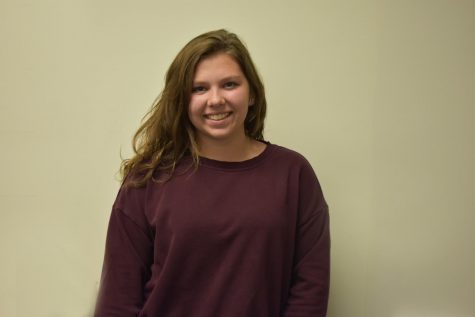
Kendall is a junior and this is her second year on Bleu Print. She is a yearbook editor, loves baking and photography. After being stuck in quarantine...

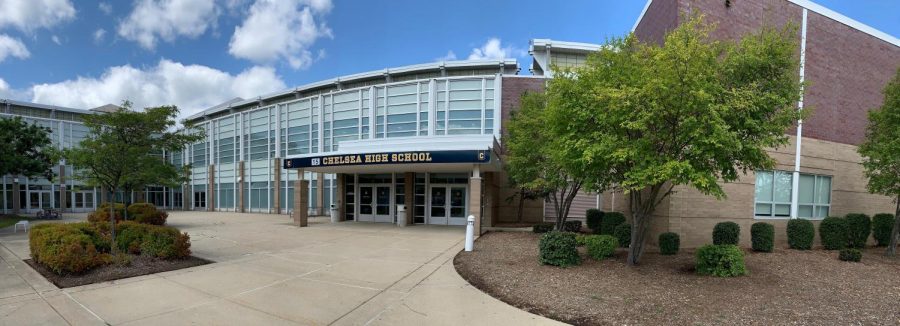
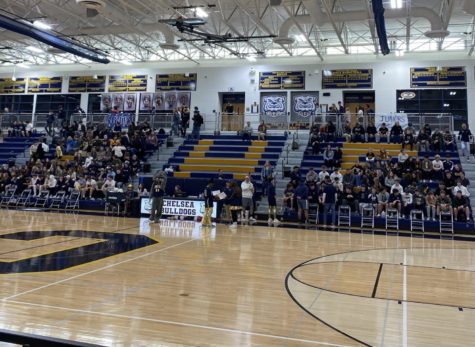
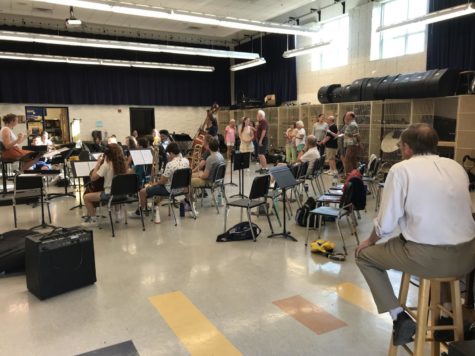
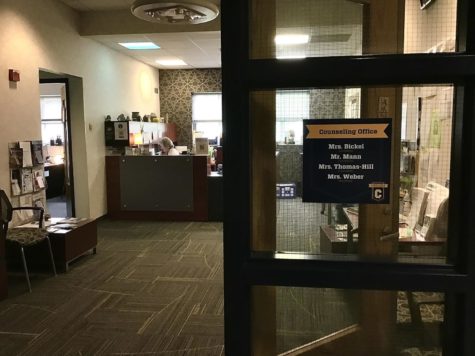

Kerry • Oct 15, 2020 at 11:56 am
Thanks Kendall. This was very informative. Have you heard back from the 4th candidate? I would like to hear from all the candidates if possible before I vote.